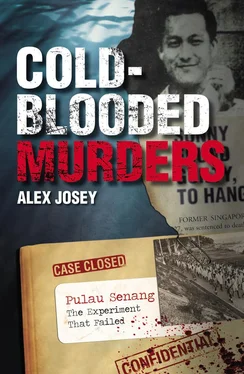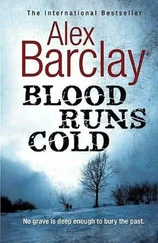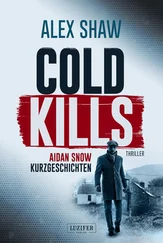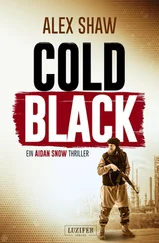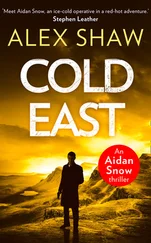Alex Josey - Cold blooded murders
Здесь есть возможность читать онлайн «Alex Josey - Cold blooded murders» весь текст электронной книги совершенно бесплатно (целиком полную версию без сокращений). В некоторых случаях можно слушать аудио, скачать через торрент в формате fb2 и присутствует краткое содержание. Жанр: Криминальный детектив, на английском языке. Описание произведения, (предисловие) а так же отзывы посетителей доступны на портале библиотеки ЛибКат.
- Название:Cold blooded murders
- Автор:
- Жанр:
- Год:неизвестен
- ISBN:нет данных
- Рейтинг книги:5 / 5. Голосов: 1
-
Избранное:Добавить в избранное
- Отзывы:
-
Ваша оценка:
- 100
- 1
- 2
- 3
- 4
- 5
Cold blooded murders: краткое содержание, описание и аннотация
Предлагаем к чтению аннотацию, описание, краткое содержание или предисловие (зависит от того, что написал сам автор книги «Cold blooded murders»). Если вы не нашли необходимую информацию о книге — напишите в комментариях, мы постараемся отыскать её.
Cold blooded murders — читать онлайн бесплатно полную книгу (весь текст) целиком
Ниже представлен текст книги, разбитый по страницам. Система сохранения места последней прочитанной страницы, позволяет с удобством читать онлайн бесплатно книгу «Cold blooded murders», без необходимости каждый раз заново искать на чём Вы остановились. Поставьте закладку, и сможете в любой момент перейти на страницу, на которой закончили чтение.
Интервал:
Закладка:
“This particular accident, which took place two weeks earlier and 200 miles from Singapore cannot be associated in time, place and circumstances with the facts that were the subject matter of the charge,” defence counsel submitted. He said it was clear that the prosecution could not seek to adduce evidence of this accident for the purpose of showing that the accused was a person, who by his past conduct, was likely to have committed the crime with which he was charged. If that were the purpose, it would be totally and completely irrelevant. Therefore, the only other purpose was to show that the accused deliberately crashed the car and tried to kill or maim Jenny and that the events of 27 August could not be an accident. Counsel argued that this piece of evidence was highly prejudicial because, if the interpretation the prosecution sought to put on the car collision remained, it would be evidence of the commission by the accused of an offence other than that with which he was charged. It could have been evidence of anything, ranging from voluntarily causing grievous hurt to attempted murder. That in itself was evidence of bad character and tended to show that the accused had committed an offence which was not the subject matter of the charge. The fact that an accused was of bad character, Mr Coomaraswamy argued, was irrelevant in criminal proceedings. He cited a series of authorities to substantiate his arguments.
Counsel submitted that the trial judge had admitted hearsay evidence and disallowed relevant evidence. He had disallowed evidence which would have shown that Jenny intended going to Britain and would be away for a long time. Had the judge allowed this evidence, counsel said, he would have submitted to the jury that there was a likelihood Jenny was alive and abroad, because of her expressed intention of going to Britain.
On the third day of the appeal, Mr Kirpal Singh, who was assisting Mr Coomaraswamy, took over. Earlier, Mr Coomaraswamy dealt with the ground of appeal which alleged that the trial judge had erred in casting unnecessary and unwarranted aspersions on the conduct of the appellant’s advocate and others associated with the accused, and had failed to give the appellant’s advocate an adequate opportunity to explain himself before the jury.
He next referred to Yeo Tong Hock, the brothel-keeper and self-confessed pimp. Mr Coomaraswamy said he had been informed by A. P. Godwin of Donaldson and Burkinshaw, a legal firm acting for the underwriters, that he (Godwin) had interviewed Yeo that morning in his office, and that Yeo had told Godwin that he had been held incommunicado by the Penang police for 10 days before he had appeared in Singapore. Counsel complained about the words the judge used.
The Acting Chief Justice said, “Those words by the judge would not have been uttered if you had told him that Godwin gave you the information. The judge does not know what is happening. Here counsel says his witness was kept incommunicado for 10 to 14 days. Witness is asked and he said ‘No’. All that must have seemed very significant at the time. You did not call Godwin and the witness denies what you said. He is your witness. Almost any judge would have made the same comment. Godwin left the courtroom and nothing more was heard about him. What was the judge to think? Many a judge would have said ‘Most extraordinary’.”
Later, counsel dealt with another ground of appeal, which alleged that the appellant was, throughout the trial, subject to such prejudice that he could not in the circumstances be said to have had a fair trial. Counsel cited a passage in the trial evidence and the remarks made by the judge. He submitted that there was risk, from these remarks, of the jury thinking that even if there was a conviction the accused would go to a court of appeal anyway. In his other comments, counsel alleged, the trial judge gave the impression that defence counsel was wasting his time. Mr Coomaraswamy said that throughout crown counsel’s opening address he had called the accused ‘prisoner’, a term used in Queen Victoria’s reign, but no longer used even in Britain. The word ‘prisoner’ might lead a jury to think that he had been sentenced for another offence. Mr Coomaraswamy suggested that on one occasion the trial judge’s remarks were indicative of his sarcasm. He also commented on the judge’s sarcasm towards the accused, which he said was bound to have an adverse effect on the minds of the jury.
Quoting an example, defence counsel said the accused had in reply to a question by the judge said, ‘Sometimes I write things in my diary which, for the life of me, I do not know what they are’. That remark ‘for the life of me’ might have been unfortunate, but the trial judge’s reply was ‘Now you have to try, for the life of you’. Mr Coomaraswamy described the judge’s remark as an improper one in a capital charge, though it was said on the spur of the moment.
Mr Kirpal Singh took over the submission at this point and said that the trial judge had left the jury in doubt as to which particular act or acts had caused death. He said this was tantamount to a misdirection of the law.
During the proceedings, additional grounds of appeal to amend those already submitted were put forward. · The learned trial judge had erred in law in failing to direct the jury that it was a matter for them to decide whether the Pedas collision was accidental or deliberately designed. If they came to the conclusion that it was accidental and not deliberately designed, to disregard the matter entirely; and if they came to the conclusion that it was deliberately designed, to utilize the evidence thereon for its proper purpose and not as evidence that because the appellant did a thing once he was likely to do it again. · The learned trial judge had erred in law in not directing the jury to ignore inadmissible hearsay evidence. · The learned trial judge had erred in law in failing to withdraw the case from the jury at the end of the prosecution case. ·
The learned trial judge had erred in law in failing to direct the jury adequately on the quantum of proof necessary before they accept an allegation of the prosecution, and on the quantum of proof necessary before they accept an explanation offered by the appellant.
Mr Kirpal Singh believed that if the trial judge had properly directed the jury it was possible that the verdict might have been an acquittal on the charge of murder. Or the jury might have found Ang guilty of the lesser charge of culpable homicide not amounting to murder. Mr Kirpal Singh submitted that Justice Buttrose, in his definition of murder, had omitted three vital words which would have made it clear that murder was the unlawful killing or causing of the death of one human being by another ‘by an act’ with the intention of doing so. If these three words had been used as required by law, the jury would have been prompted to ask what was the act alleged to have caused death.
Counsel submitted that the trial judge did not think that the cutting of the flipper worn by Jenny was the act. He said, “We are not clear as to what is the cause of death. There is no firm clear answer which particular act caused death. We do not know.” There was evidence, and it was overwhelming, to the effect that the waters in and around the Sisters Islands were dangerous even for expert swimmers. It could be said on evidence that Jenny was not an experienced swimmer or diver. Therefore, it could be said to be a reasonable inference that the combination of these two factors (dangerous waters and inexperienced swimmer) caused her death. It might even be said that the accused was aware of both these factors and presumably, before setting out for Sisters Islands, he might have told Jenny they were going into the water. Telling her ‘we are going into the water’ would be the act within the meaning of the law. The question was whether it would be proper to place it within the first limb of Section 299 (doing an act with the intention of causing death), or the third limb (doing an act with the knowledge that he was likely, by such act, to cause death). Counsel argued that the accused was entitled to a direction to the jury under the third limb. Had this been done, a possible verdict would be acquittal or culpable homicide not amounting to murder.
Читать дальшеИнтервал:
Закладка:
Похожие книги на «Cold blooded murders»
Представляем Вашему вниманию похожие книги на «Cold blooded murders» списком для выбора. Мы отобрали схожую по названию и смыслу литературу в надежде предоставить читателям больше вариантов отыскать новые, интересные, ещё непрочитанные произведения.
Обсуждение, отзывы о книге «Cold blooded murders» и просто собственные мнения читателей. Оставьте ваши комментарии, напишите, что Вы думаете о произведении, его смысле или главных героях. Укажите что конкретно понравилось, а что нет, и почему Вы так считаете.
